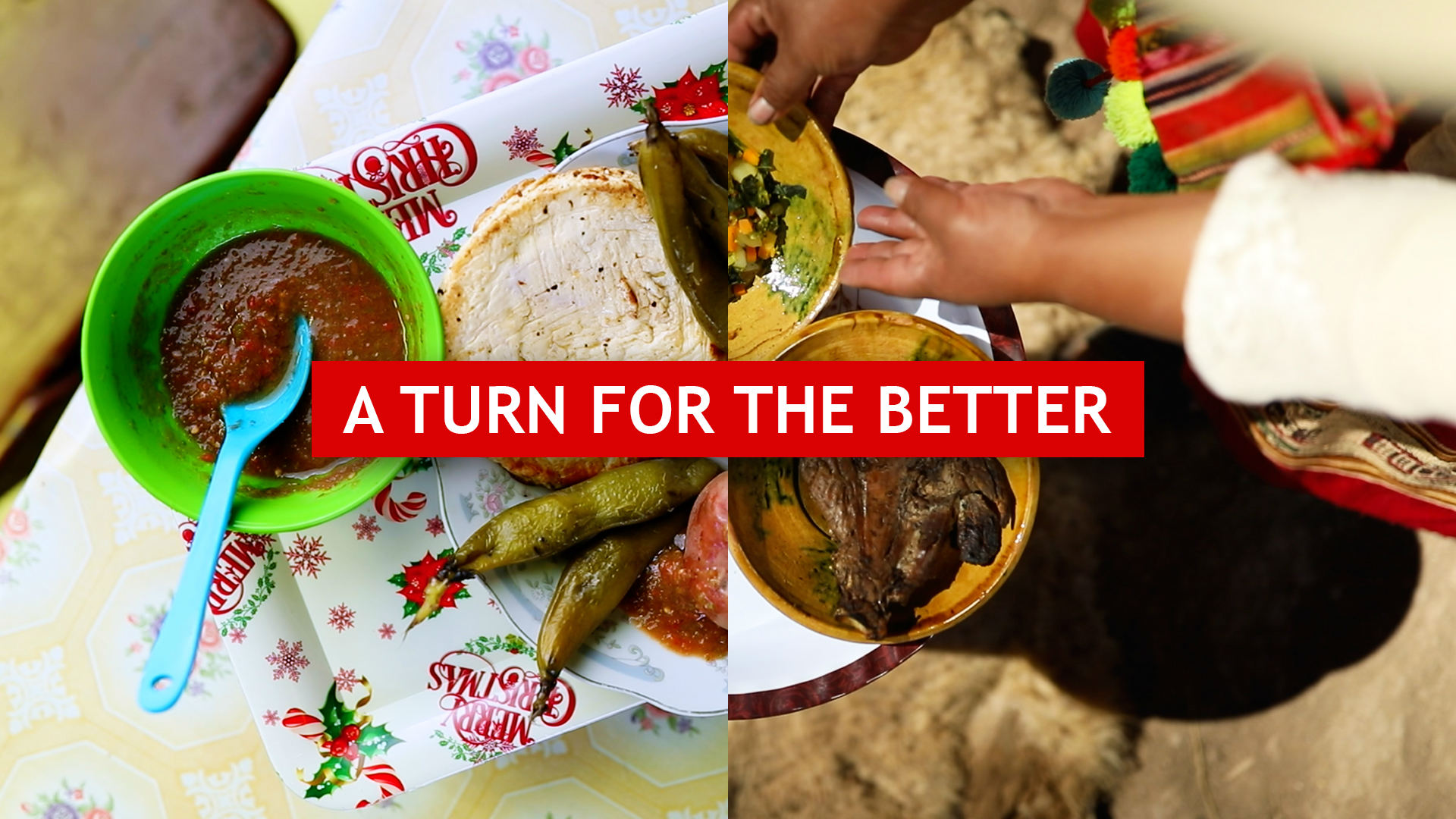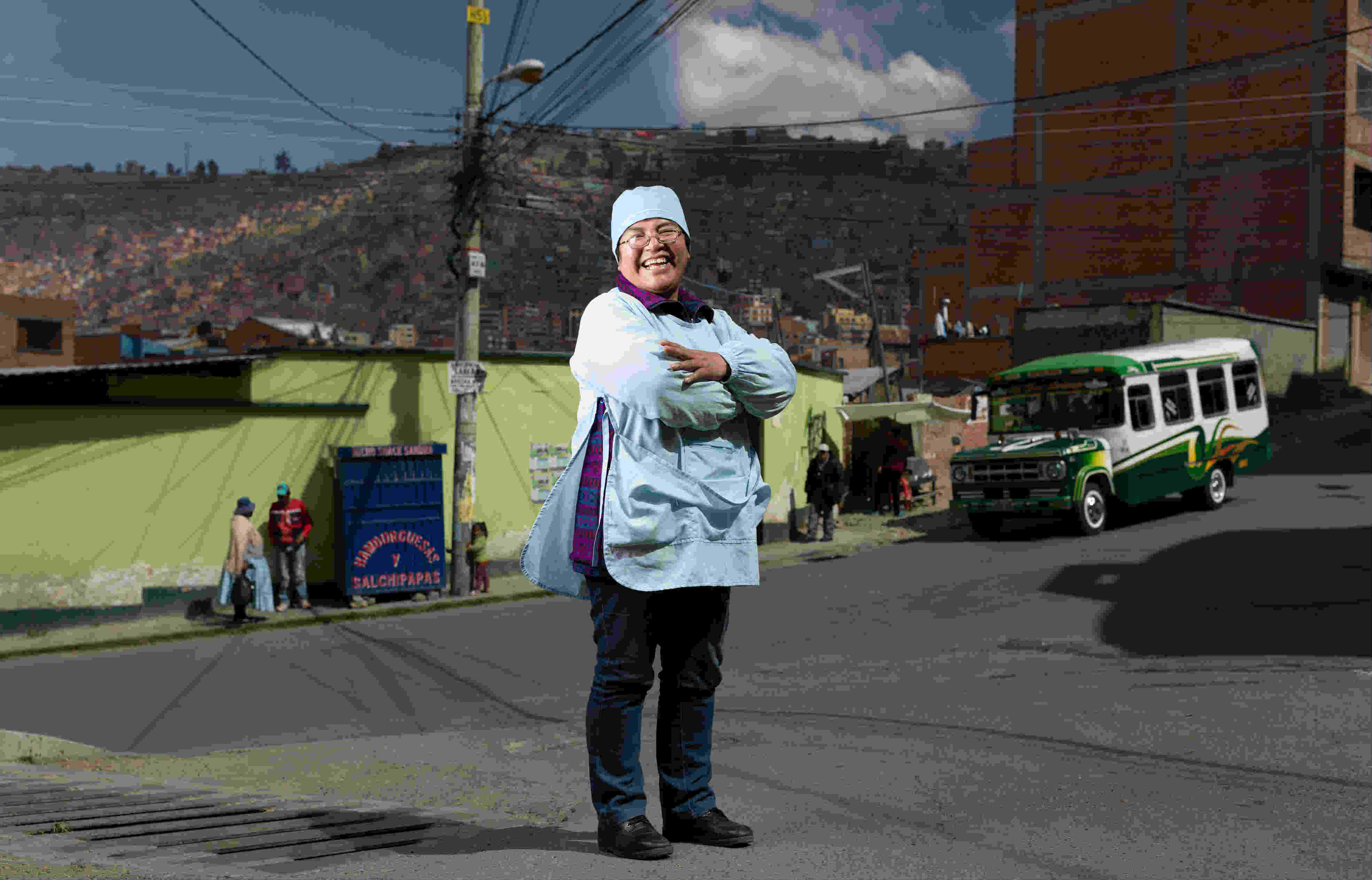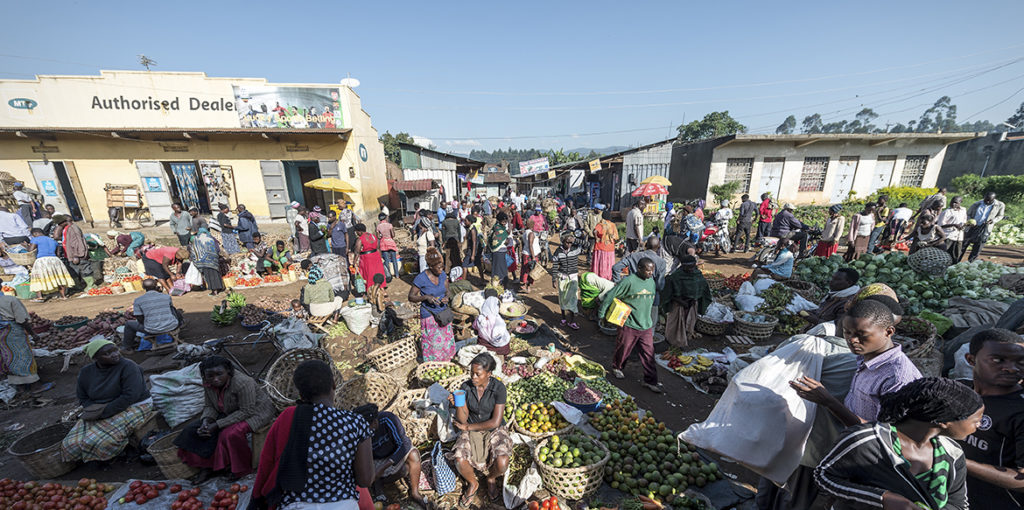Hivos believes people should have access to sufficient, affordable and healthy food that is produced sustainably, now and in the future. Join us as we take you around the world to see inspiring examples of how we can change food systems together.
A Turn for the Better
Despite a range of healthy traditional foods available in Bolivia thanks to the country’s rich biodiversity, Bolivians are increasingly eating highly processed food products. If we want people to choose more sustainable, healthy diets, several things need to be done: improving public policy for urban food security; supporting the production and consumption of Andean grains; and providing positive food choices for consumers. But there’s something else very important in this equation. Our short film, A Turn for the Better, shows the vital role that women play in the food system, from production to consumption.
What the women are saying about food
“For me a sustainable diet is to produce, while caring for the land, guarding knowledge, and revaluing that knowledge.” – Trigidia (pictured above) on rescuing knowledge about local foods
“In Bolivia, talking about sustainable food or diets means talking about going back to local.” – Katyussa (food advocate) on re-educating people about healthy, local foods
“Food is so fundamental to avoid diseases.” – Nelly (market seller) on the importance of eating a healthy, diverse diet
Hivos and Sustainable Diets for All
Sustainable Diets for All is an advocacy program that uses evidence, including evidence generated by citizens, to help low-income communities in Bolivia, Indonesia, Kenya, Uganda and Zambia get better access to sustainable, diverse and nutritious food. The five-year (2016–2020) program is coordinated by Hivos, the International Institute for the Environment and Development (IIED), and partners in the five focal countries. We work with citizens and partner organizations to influence policies, market practices, government actors and international institutions to promote diets that are diverse, healthy, fair and green.
Watch other videos
There is an increased consumption of processed fast foods in Indonesia, especially among children Healthy Generations Ahead shows how starting a healthy food movement in Indonesia begins with children and their parents.
Zambia has one of the world's highest rates of undernourishment as a result of the country's over-dependence on maize. Life Beyond Maize addresses this lack of diversity in the country’s agricultural production and food consumption.
Many healthy indigenous crops in Uganda have been abandoned in favor of cash crops like sugar cane and rice, with consequent detrimental effects on people’s diets. Food is Life, shows how crucial it is for public policy to include the voices of people working in local food systems if we are to ensure sustainable diets for all.







